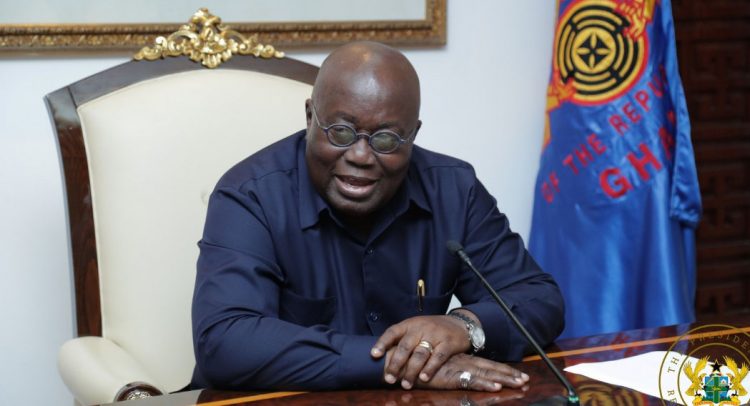President Akufo-Addo
Nearly 50 percent of Ghanaians in a recent survey expressed their satisfaction with the Akufo-Addo administration and reiterated their commitment to vote to retain the party in power if elections are held tomorrow.
Out of a large number of respondents from the rural and urban centres, 50 percent of those in the urban areas said they would vote for the NPP while 48 percent from the rural areas voted in favour of the ruling party.
The opposition National Democratic Congress (NDC), on the other hand, only garnered 17 percent of votes in the urban areas while 27 percent in the rural centres said they would vote for the NDC if elections are held tomorrow.
This was according to an Afrobarometer Round 7 survey – a Pan-African, non-partisan research network that conducts public attitude surveys on democracy, governance, economic conditions and related issues in countries across Africa, which was coordinated by the Centre for Democratic Development (CDD).
The survey reinforces similar opinions expressed by Ghanaians some few months ago in another survey conducted by the Political Science Department of the University of Ghana, Legon, which indicated that the majority of Ghanaians would vote for the NPP if elections are held immediately.
The NPP won the 2016 general elections by 53.80 percent, defeating the then incumbent NDC to take over the affairs of the country.
January 7, 2018 marked the first anniversary of the party in power and while it has achieved some significant feat, it is not surprising to say that the government has had its fair share of criticisms mainly from the NDC and a series of allegations, most of which have to do with corruption.
Notably, more than 80% of the respondents in the urban areas and another 82% in the rural areas voted in the 2016 general elections.
Sixty-five percent of the urban respondents saw the 2016 general election to be completely free and fair while 66 percent in the rural areas held that the election was completely free and fair.
What makes the survey more interesting is the fact that the majority of the respondents say they do not identify with any political party and voted purely based on the capacity of the candidates in the past election.
The survey also showed that 30 percent of the respondents in the urban centres indicated that the economic conditions of the country is “fairly good” while 25 percent of those in the rural areas say it is “fairly good.”
On their living conditions, 43 percent of urban folks say is better while 36 percent rural dwellers claim it is better.
On corruption, 31 percent of urban respondents said the canker has somewhat reduced while 29 percent of their counterparts in the rural areas think same.
Another 22 percent of both urban and rural respondents, on the other hand, indicated that corruption has remained the same.
The results of the research also showed that 46 percent of Ghanaians in the urban areas and 47 percent rural folks are satisfied with government’s fight against illegal mining (galamsey), which is gradually restoring environmental sanity.
The election of Metropolitan, Municipal and District Chief Executives (MMDCEs) also came up in the survey and 55 percent of the urban respondents said, “MMDCEs should run as nonpartisans in a manner similar to how assemblymen and women are elected,” and 45 percent of those in the rural area also think same.
One striking observation in the survey is that 53 percent of the respondents from the urban centres and 65 percent from the rural areas said they would remain in the country even if they had the chance to move to another country.
By Gibril Abdul Razak


